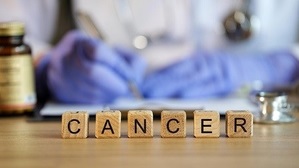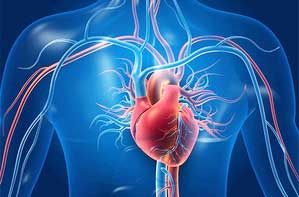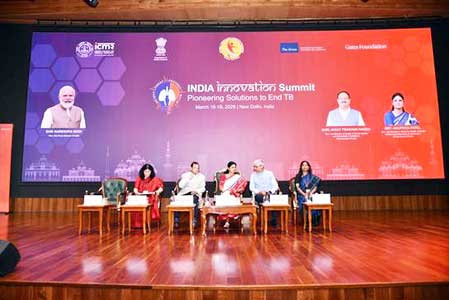Even as breast cancer cases are rising across the globe, an international team of scientists has developed a hand-held sensor device that makes screening fast, affordable, and accurate, from a tiny sample of saliva in just five seconds.
The biosensor design, by a team from the University of Florida and National Yang Ming Chiao Tung University in Taiwan, uses common components, such as widely available glucose testing strips and the open-source hardware-software platform Arduino.
"Imagine medical staff conducting breast cancer screening in communities or hospitals," said Hsiao-Hsuan Wan, from the Department of Chemical Engineering, University of Florida.
"Our device is an excellent choice because it is portable -- about the size of your hand -- and reusable. The testing time is under five seconds per sample, which makes it highly efficient," Wan added.
The device uses paper test strips treated with specific antibodies that interact with the targeted cancer biomarkers.
A saliva sample is placed on the strip, and pulses of electricity are sent to electrical contact points on the biosensor device.
These pulses cause the biomarkers to bind to the antibodies and alter the charge and capacitance over the electrode.
This produces a change in the output signal, which can be measured and translated into digital information about how much biomarker is present.
The design is revolutionary compared to its alternatives. Mammograms, ultrasounds, and MRIs are costly and invasive and require large, specialised equipment, present low-dose radiation exposure, and can take days or weeks to return test results, said the researchers in the paper published in the Journal of Vacuum Science & Technology B.
"In many places, especially in developing countries, advanced technologies like MRI for breast cancer testing may not be readily available," Wan said.
"Our technology is more cost-effective, with the test strip costing just a few cents and the reusable circuit board priced at $5. We are excited about the potential to make a significant impact in areas where people might not have had the resources for breast cancer screening tests before," Wan said.
The biosensor requires just a drop of saliva, and it can provide accurate test results even if the concentration of the cancer biomarker in the sample is only one quadrillionth of a gram, or one femtogram, per millilitre.
"The highlight for me was when I saw readings that clearly distinguished between healthy individuals and those with cancer," Wan said.
"We dedicated a lot of time and effort to perfecting the strip, board, and other components. Ultimately, we've created a technique that has the potential to help people all around the world," Wan said.






DoNER Ministry facilitate in unlocking Manipur’s growth: Scindia
Union Development of North Eastern Region (DoNER) Minister Jyotiraditya Scindia on Thursday said that he is confident that his ministry would serve as a proactive facilitator in unlocking new opportunities and accelerating Manipur’s growth and development.
National Herald case: Congress protests outside ED offices in northeastern states
Congress leaders claimed that through false allegations, the Enforcement Directorate (ED) under the direction of the Central government filed a chargesheet against the party's Parliamentary Party Chairperson Sonia Gandhi and Leader of Opposition (LoP) Rahul Gandhi, among others.
Seven cops injured during anti-Waqf Act rally in Tripura
At least seven policemen sustained injuries on Saturday during a clash between the security personnel and the agitators who held a protest rally against the recently enacted Waqf (Amendment) Act in northern Tripura’s Kailashahar under Unakoti district.
68 tonne areca nuts worth Rs 5.87 cr smuggled from Myanmar seized in Manipur
After Mizoram, the Assam Rifles have seized 68 tonnes of smuggled areca nuts worth Rs 5.87 crore in Manipur’s Kangpokpi district, officials said on Friday.